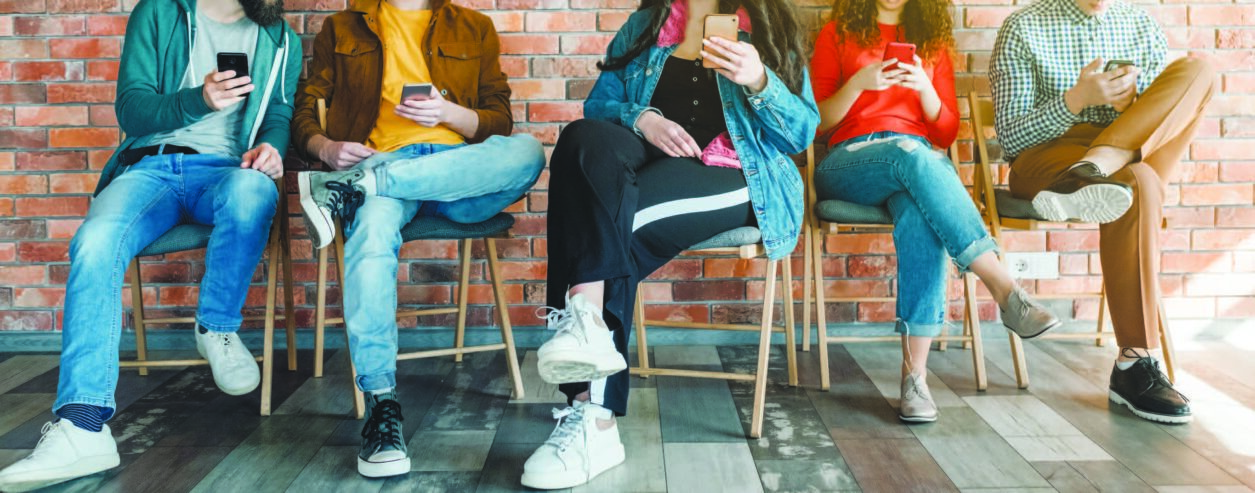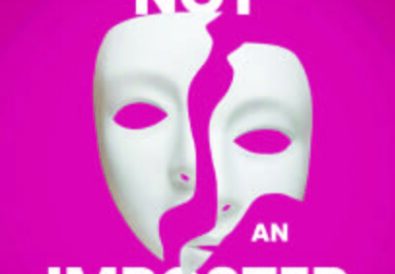Thanks to social media, we are connecting with one another more now than ever before. Yet many Americans admit to feeling more alone. This makes sense considering we are not virtual beings; we are physical, emotional, mental, and spiritual beings who need to relate in these humanistic ways. It’s possible that we believe we are socially connecting because it is called social media, when in reality, we are socially isolating from our true nature and from one another.
In the 1990s, they called it the Internet Paradox. Researchers at Carnegie Mellon found us to be more socially disconnected while online. Not only was Internet use proven to reduce our inner circle of friends, but it also detracted from time spent socializing with our own family members. This led to a marked increase in loneliness and depression. Why, then, did we allow ourselves (and our kids) to become more computer-driven instead of less?
After assessing my less-than-social life, I decided to ask a few friends if they were staying home more, irrespective of the pandemic. They said yes, but thought it was just a sign of the times, that everyone was going out less. Not satisfied by their answer, I decided to put a two-question survey on my Facebook page: “Do you believe you are actually socializing while using Facebook, and if so, do you think you are replacing other forms of social interaction?”
Twenty respondents later, I discovered the vast majority claim social media use (SMU) is a “supplement, compliment, or extension of” their social calendar. Eighteen of the twenty admitted to spending an hour or more a day online, and a few actually considered their social media use “a blessing.” Facebook, they claimed, helped to reconnect them with people from their past, stay close to family members, and keep up with national and global news trends. Their sentiments mimic my own, but my initial question about SMU was still unanswered.
One by one, I reached out through messenger and phone to ask, “Do you believe you are socializing less because you are Facebooking more?” Everyone admitted to fewer in-person visits, even before the pandemic started, but, interestingly, each went on to justify their SMU, insisting that being on social media was positive. When I asked if it made them happier, no one said yes; half hedged the question; the other half admitted the answer was no.
These survey results came as no surprise. As a writer and author, the Facebook platform has been invaluable to me. In fact, I have often said it is like having my own daily newspaper and live television show. Obviously, there is a need to navigate around negative news and emotionallycharged opinion — and who hasn’t experienced trollers and fake profiles? Overall, though, I cannot imagine my professional life without SMU… until now.
Perhaps the reason we cannot honestly assess our time spent on Facebook is because we are unaware of how it is affecting our social life and persona. The truth is, there is a hidden hazard – one that lurks virtually beneath the surface of our consciousness. What starts out as an innocuous desire to connect and share with friends leads to what experts define as social comparison; an instinctual need to compare ourselves to others. Years ago, our sphere of influence was small. Perhaps we innocently likened ourselves (and our lives) to actors on TV, neighbors, and friends we saw once in a while.
Now, though, with daily scrolling, we are exposed to hundreds or thousands of enviable posts, photos, and videos a week. So many people with beautiful clothes and homes, seemingly perfect partners, relationships, exotic vacations, elaborate parties, and gatherings…even a person who is genuinely happy for their friends and family and deem themselves fortunate, may find some facet of their life lacking after this much exposure. Researchers who studied this aspect of SMU found that the more we engage, the more opportunity for our psyche to perceive ourselves as lonely and lacking support and companionship. And this perceived social isolation (PSI) causes us to isolate even more.
As if the mental and emotional effect wasn’t bad enough, another study revealed that SMU may increase our excretion of some hormones; namely, oxytocin (the same hormone women produce during pregnancy to keep them bonded to their offspring), and dopamine (the hormone that speaks to cocaine, alcohol, and sexual addiction). This increase can cause a compulsory need to check our newsfeeds, as well as the number of new likes, loves, and followers we have. To put a cherry on top of our hormone cocktail, PSI increases cortisol, our stress hormone, which can lead to anxiety, depression, digestive issues, headaches, muscle tension, heart disease, heart attack, high blood pressure, stroke, sleep problems, weight gain, and memory and concentration impairment. So, how much fun are we having now?
“No more FOMO” is a psychological finding released by the University of Pennsylvania. They used 143 undergraduates to reveal the amount of stress and cortisol that was induced by a fear of missing out and not being included in the activities of friends. Fortunately, the study showed that limiting SMU to ten minutes a day can counter some effects and decrease feelings of loneliness and depression. They also noted that just monitoring our usage will reduce symptoms. This is good news for people like myself who started using social media for all the right reasons and want to keep going despite all the potential side effects.
After reflection, my survey respondents and I acknowledged some feelings of isolation, but none of us attributed it to SMU. The truth is I adore my house, and as a full-time student with a work-fromhome business, a dog, and my elderly mother to attend to, I have less reason to go out. Logically speaking, I feel some fulfillment being Internet-ically connected to so many people. Illogically speaking, I don’t want to get out of my yoga pants; sometimes, I don’t even feel like brushing my hair. So, I will admit there may be something more menacing going on.
Due to the variations in age, geography, career, and lifestyle, science cannot nail down the benefits and detriments of our usage. It makes sense, then, to self-regulate. Perhaps we need to ask ourselves the chicken or the egg question: Are we using social media more because we feel isolated, or are we isolating more because we are using social media? Either way, unless we all want to become as two-dimensional as our Bitmojis, let’s acknowledge how important it is to get some face-to-face time with those we deem our friends.
 Donna Martini is a wellness coach and activist, student of psychology, and author of several books, including My Mini Book of Mighty Mantras and The Ten Commandments of Divorce. She helps businesses, non-profits, government agencies, families, and individuals tap into their full potential through an energy process she calls Positive Manipulation®. Her cartoon character, MantraMouse®, uses simple phrases to help people of all ages come to understand their human complexities, innate power, and potential. Donna can be reached at donna@donnamartini.com. Follow her on https://www.facebook.com/donna.martini.7 Learn more at www.mantramouse.com
Donna Martini is a wellness coach and activist, student of psychology, and author of several books, including My Mini Book of Mighty Mantras and The Ten Commandments of Divorce. She helps businesses, non-profits, government agencies, families, and individuals tap into their full potential through an energy process she calls Positive Manipulation®. Her cartoon character, MantraMouse®, uses simple phrases to help people of all ages come to understand their human complexities, innate power, and potential. Donna can be reached at donna@donnamartini.com. Follow her on https://www.facebook.com/donna.martini.7 Learn more at www.mantramouse.com




















